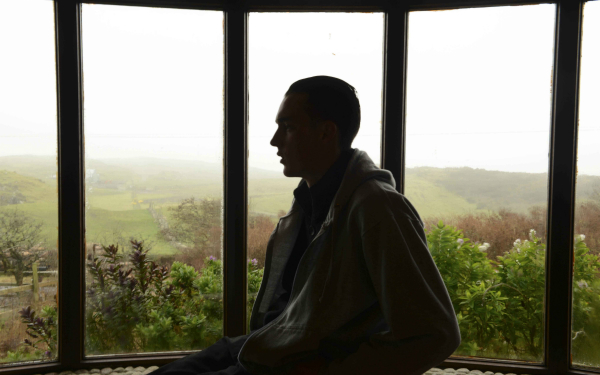
An unavailability of mental health beds, doctors and transport are leading to severe delays in Mental Health Act 1983 (MHA) assessments that are increasing risks to people and their families.
That was the warning from approved mental health professional leaders as they urged the government to require partner agencies to support the MHA assessment process, as AMHP services are obliged to do.
The AMHP Leads Network said it was “receiving reports of concern from members in all areas of England in relation to long delays in co-ordinating and concluding Mental Health Act assessments, plus the impact this is having on both the people in distress being assessed and the staff providing care and assessment”.
Pressures ‘escalating rapidly’ in wake of Covid
While such pressures were longstanding, they were “escalating beyond usual or sustainable levels rapidly”, on the back of rising demand for mental health crisis care in the wake of Covid-19.
Under section 13 of the MHA, councils must arrange for AMHPs to consider cases in which an application may need to be made to admit a person to hospital under the act. AMHPs must make an application following assessment if they are satisfied that it ought to be made, though only if detention in hospital is the most appropriate way of providing the care and medical treatment the person needs.
The Mental Health Act code of practice further requires councils to ensure they have sufficient AMHPs to carry out their duties and should be able to provide a 24-hour service that can respond to patients’ needs.
The network said that some delays in the process were the result of AMHPs, rightly, exploring alternatives to detention for the person, in line with the MHA code of practice’s principle of adopting the “least restrictive” option of care.
Delays sourcing doctors for MHA assessments
However, where AMHPs decide that an MHA assessment is required, the network said they faced significant challenges finding the two doctors whose agreement is necessary for an application for detention under the act to proceed.
One of the doctors must be approved as having expertise in mental health, under section 12 of the act, and the other – generally – is expected to know the patient.
However, no health agency is required to provide either doctor, many NHS trusts do not rota medics for MHA assessments and cannot spare them from busy ward rounds and several section 12 doctors will not attend assessments in the early hours of the morning, the network said. This led to delays of two to 12 hours in carrying out assessments, it added.
Where assessors decide the person should be admitted, the code of practice specifies that it is the doctors’ responsibility to find a bed, and that NHS commissioners and providers should agree procedures to ensure beds are available when required.
Lack of beds
However, the network said that there were often delays of between several hours and several days in sourcing a bed. In some areas, this was because AMHPs and doctors were not permitted to look for a bed until they had completed the assessment.
This often meant AMHPs had to spend several hours with the person in their home, in a police cell or in A&E departments, while in other cases, a reassessment was required as the original AMHP was not available when a bed was identified.
Once beds had been identified, AMHPs often faced further delays in securing transport to take the person to hospital. In some areas, ambulance crews categorised mental health calls as low or medium priority, increasing waiting times. There were also cases where they declined to take patients without an escort, due to perceived risks, or refused to convey them to out-of-area hospitals because of distance, the network said.
Need for duties on health services to support assessments
To tackle the delays, the network wants the government to use its forthcoming reform of the MHA place “mirror duties” – similar to section 13 of the MHA – on partners including integrated care boards and mental health trusts, to require them to support the assessment process. The network is calling for a requirement in the code of practice for there to be sufficient section 12 doctors available to carry out assessments, similar to the duty on councils to ensure sufficient AMHPs.
No such changes are included in the government’s draft Mental Health Bill, published last year, which is its blueprint for reform. This was recently scrutinised by a parliamentary committee but – despite the AMHP Leads Network calling for the changes in the evidence it provided – the committee’s report did not recommend the changes.
It will now need to rely on the government introducing the measures in its full Mental Health Bill, due for publication later this year, or on MPs or peers to push amendments making the changes during its passage through Parliament.
Related articles
In response to the network’s concerns, a Department of Health and Social Care spokesperson said: “It is essential that assessment of the Mental Health Act takes place in a timely manner, and we expect appropriate provisions to be put in place locally to enable this – which are in line with the Mental Health Act code of practice.
“We are improving access to mental health services through the NHS Long Term Plan. This will see funding across the whole NHS mental health service in England increase by an additional £2.3bn a year by 2023 to 2024 so that two million more people will be able to get the mental health support they need.”
Mental health demand ‘spiralling’
On behalf of healthcare leaders, NHS Confederation chief executive Matthew Taylor said: “Leaders will stress that demand is still spiralling and the knock-on effects of the pandemic on the mental health of the population continues to reverberate with services stretched.
“With around 1.6m people on the mental health waiting list, we continue to urge the government to implement the crucial Mental Health Act reforms as soon as possible as well as fulfil its commitment to increase mental health staffing numbers in its promised, and long overdue NHS workforce plan.”
He added: “While there is no quick solution, our members highlight that there has been an increase in demand, which has led to a knock-on impact on bed occupancy. This has also meant that medically fit patients are staying longer due to challenges in discharges.”
Since December, the government has allocated £700m to councils and integrated care boards to help speed up discharges over the winter, but Taylor said this funding “came too late to make a meaningful difference”, and needed to come earlier this coming year.
He added: “If the government overlook the pressures and demand in mental health, the bigger the crisis becomes both for the most vulnerable in our society and for the service.”




 A trauma-informed approach to social work: practice tips
A trauma-informed approach to social work: practice tips  Problem gambling: how to recognise the warning signs
Problem gambling: how to recognise the warning signs 




 Find out how to develop your emotional resilience with our free downloadable guide
Find out how to develop your emotional resilience with our free downloadable guide  Develop your social work career with Community Care’s Careers and Training Guide
Develop your social work career with Community Care’s Careers and Training Guide  ‘Dear Sajid Javid: please end the inappropriate detention of autistic people and those with learning disabilities’
‘Dear Sajid Javid: please end the inappropriate detention of autistic people and those with learning disabilities’ Ofsted calls for power to scrutinise children’s home groups
Ofsted calls for power to scrutinise children’s home groups Seven in eight commissioners paying below ‘minimum rate for home care’
Seven in eight commissioners paying below ‘minimum rate for home care’
 Facebook
Facebook X
X LinkedIn
LinkedIn Instagram
Instagram
AMHPs collude with this abusive, harmful and traumatising process often knowing full well the law is repeatedly broken day in day out. The day they raise formal safeguarding concerns with the councils who employ them is the day they get to claim they care. But thats not ever going to happen , is it? Let alone speak up about abuse and neglect on wards people are sectioned to. Here the average wait time for a planned MHAA is 17 days. Not a single AMHP in these 2 London boroughs covered by a MH Trust has EVER reported these delays as safeguarding issues. Not once since the Care Act came in to force.
So why would giving them more powers to find a bed change the culture of complicity that is central to these abuses? Anyone but anyone who falls victim to a MHAA will tell you this isnt about funding, its about a level of accepted violence and neglect towards vulnerable people. No amount of money will change the culture and practice. Including AMHPs thinking it OK to turn a blind eye.
As someone whose family member has been repeatedly detained and is significantly damaged by this process ( as are we) would be very happy if they just downed tools and withdrew their labour and if they were that bothered they would at least try force this particular issue by doing so.
We live in London where there is no centralised AMHP team meaning some random social worker from a community team does this as top up earnings. NEVER has any of them ever met our family nember before and the same goes for s12 Doctors.
Sick to death of hearing the same narrative from a group of professionals who have been colluding with blatant and flagrant abuse of the laws there to protect and not once taken decisive action.